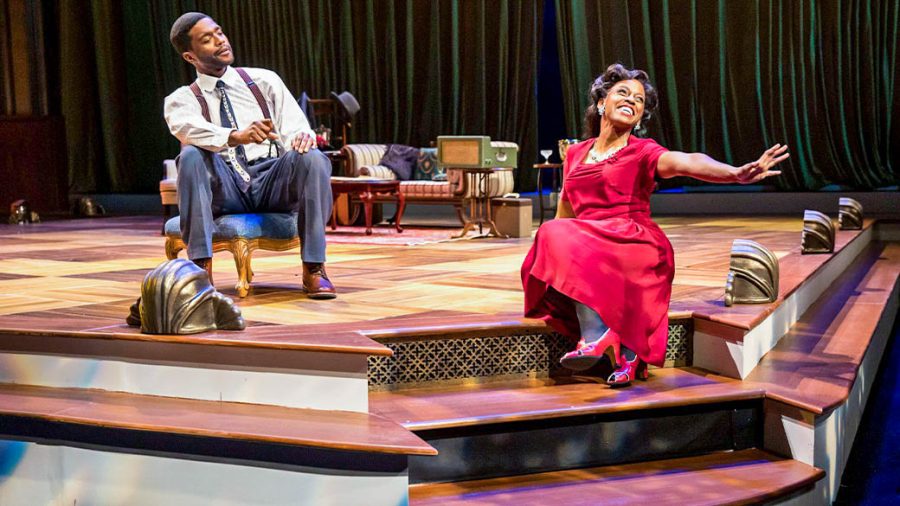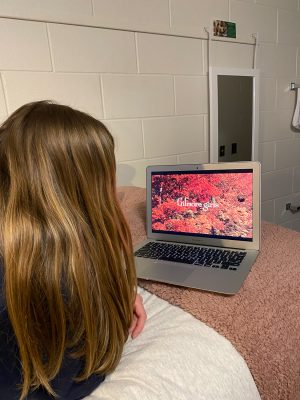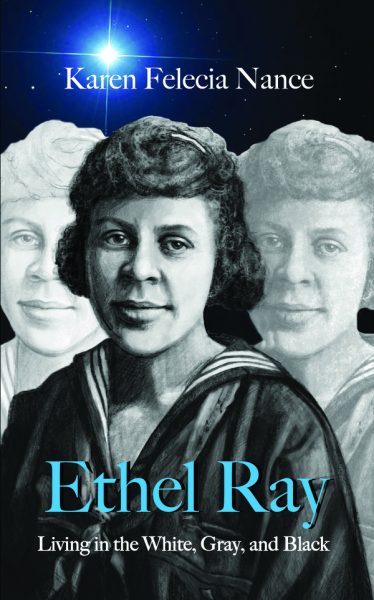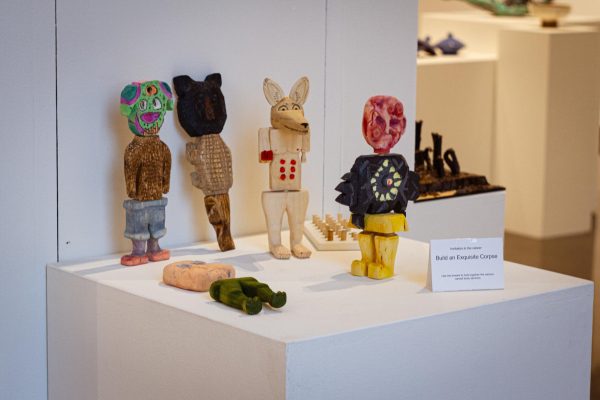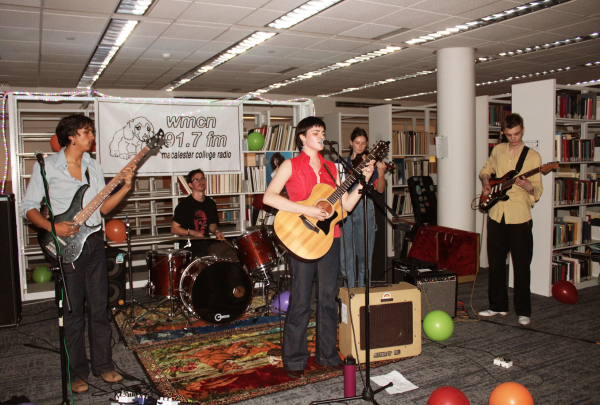Blues for an Alabama Sky at the Guthrie
March 9, 2023
A celebration of love and friendship, Blues for an Alabama Sky is the latest on stage at the Guthrie Theatre in Minneapolis. The production of Pearl Cleage’s 1995 play is a poignant portrayal of life in Depression-era Harlem. Directed by Nicole A. Watson, this production is a refreshing start to the Guthrie’s season this year. Running from Jan. 28 to March 12, with most of the performances appropriately taking place during Black History Month, the show highlights an important period of time in history for Black Americans. The show follows four friends trying to scrape by as the times change from the Roaring Twenties to the Great Depression, highlighting the complexities of following dreams in a world in which the odds are stacked against you.
The play is set in a very specific time period: Harlem in the 1930s. From the moment you take your seat in the audience, all you have to do is look up at the signs, and you are situated on Lennox Avenue; the heart of Harlem. I had the privilege of attending this performance with my class, African American Literature (1900-present) with Professor Daylanne English. It could not have been a more perfect opportunity to see the historical context we have been researching during our Harlem Renaissance unit come to life on stage. However, even for audience members who have not been studying this material, the Guthrie does a great job providing the context that is necessary to understand the themes at play. The show is packed with references to the iconic Black artists of the time; the cast even parties with Langston Hughes in the first act.
Featuring an all-Black cast, one of the performance’s strengths is the depth of the characters’ portrayals. The talented Kimberly Marable plays Angel Allen, a spirited singer who struggles to keep out of trouble. From crumbling romantic relationships to losing her job at the nightclub, she is scattered, unreliable and often finds herself in tough situations. Keeping her afloat is her longtime friend, Guy Jacobs (Lamar Jefferson), a dazzling costume designer who dreams of working for Josephine Baker in Paris. Guy was equally hilarious as he was wise, and he stole the show of every scene he was in. It was delightful to have a character on stage who was openly gay, a perspective that is often left out in historical dramas. The duo’s chemistry is amazing and demonstrates the importance of found families.
Guy and Angel spend most of their time with their neighbor, Delia Patterson (Brittany Bellizeare), a sweet social worker who is working to improve access to reproductive healthcare and family planning in their community. Assisting her in this endeavor is Sam Thomas (Stephen Conrad Moore), a doctor who is not only reliable and hardworking, but is also the life of the party. Conflict arises in the form of Angel’s love interest, a Southern gentleman by the name of Leland Cunningham (Darius Jordan Lee). Leland is very different from Angel and her friends. He is very conservative, and his pursuit of Angel is motivated by the desire to fill the shoes of his late wife, who passed away during childbirth. He overtly disapproves of Guy’s homosexuality and Delia and Sam’s involvement in the reproductive rights movement, and this places a strain on Angel’s friendships. She finds herself torn between an authentic lifestyle with her friends and the security Leland provides for her. Despite the small cast, the play navigates several intersecting aspects of identity, providing diverse perspectives on themes of abortion, sexuality and race.
The fabulous script and characters were not the only notable aspects of the performance. The show came alive through immersive visual elements. The play featured wonderful costuming from Sarita Fellows and a creative set portrayal of a New York apartment building. Most of the scenes took place downstairs in Guy and Angel’s apartment. However, all the cast had to do was walk upstage, and Delia’s apartment was right there. The show felt very interactive, as scenes also took place in the aisles around the thrust stage. This is fitting, as this is the kind of show you need to be immersed in. I recommend this show to everyone and am looking forward to seeing what the Guthrie has in store for the rest of their season.

